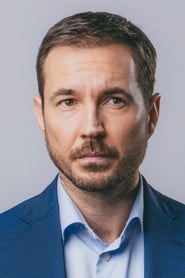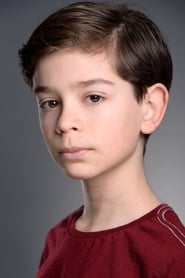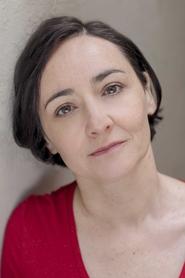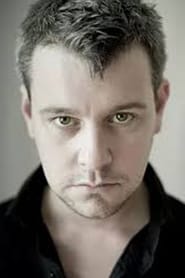
Ask Your Own Question
What is the plot?
What is the ending?
In the ending of "The Aftermath," Rachael confronts her feelings for both her husband, Lewis, and the German architect, Stefan. After a series of emotional confrontations, Rachael ultimately chooses to leave with Stefan, but the film closes with a sense of unresolved tension and the lingering impact of their choices.
As the film approaches its conclusion, the atmosphere is thick with tension and unresolved emotions. Rachael, played by Keira Knightley, is caught in a web of conflicting loyalties and desires. The story unfolds in a series of poignant scenes that highlight the emotional turmoil of the characters.
Scene 1: The confrontation at the house. Rachael and Lewis, portrayed by Jason Clarke, have a heated discussion about their marriage and the distance that has grown between them since the war. Rachael expresses her frustration and pain, revealing how she feels trapped in a life that no longer feels like her own. Lewis, still grappling with the trauma of war, struggles to understand her feelings, leading to a painful standoff.
Scene 2: Rachael's connection with Stefan. As Rachael spends more time with Stefan, played by Alexander Skarsgård, their bond deepens. In a quiet moment, they share a kiss, which symbolizes both a release of pent-up emotions and the beginning of a complicated relationship. This scene is charged with longing and the weight of their respective pasts, as both characters seek solace in each other amidst the ruins of their lives.
Scene 3: The final decision. In a climactic moment, Rachael must choose between her husband and Stefan. The tension is palpable as she weighs her feelings and the consequences of her choice. Ultimately, she decides to leave with Stefan, a decision that signifies her desire for a new beginning, even as it comes with the pain of leaving Lewis behind.
Scene 4: The aftermath of the choice. The film closes with Rachael and Stefan driving away, leaving Lewis standing alone at the house. The camera lingers on Lewis's face, capturing his heartbreak and the sense of loss that envelops him. Rachael's expression is a mix of hope and sorrow, reflecting the complexity of her decision. The final shot emphasizes the emotional weight of their choices, leaving the audience with a sense of ambiguity about the future.
In the end, Rachael's choice to leave with Stefan signifies a break from her past, while Lewis is left to confront the reality of his solitude and the emotional scars of war. The film concludes without providing clear resolutions for the characters, highlighting the enduring impact of their decisions and the complexities of love and loss.
Is there a post-credit scene?
The movie "The Aftermath," produced in 2019, does not contain a post-credit scene. The film concludes its narrative without any additional scenes or content after the credits roll. The story wraps up with the emotional and dramatic resolutions of the main characters, focusing on themes of love, loss, and the impact of war.
What is the significance of the house in The Aftermath?
The house in The Aftermath serves as a central symbol of the emotional and physical aftermath of World War II. It is a grand, yet damaged estate that reflects the characters' struggles and the remnants of their past lives. For Rachael, the house represents her attempt to rebuild her life after the loss of her son and the strain on her marriage. For Stefan, it embodies the guilt and trauma of his experiences during the war. The interactions within the house highlight the tension between the characters and their conflicting desires for healing and connection.
How does Rachael's relationship with Stefan evolve throughout the film?
Rachael's relationship with Stefan begins with tension and resentment, as she initially views him as an intruder in her life and home. However, as they share the space and confront their respective traumas, a complex bond develops. Rachael finds herself drawn to Stefan's vulnerability and shared grief, leading to moments of intimacy that challenge her loyalty to her husband, Lewis. This evolution is marked by emotional turmoil, as Rachael grapples with her feelings of guilt and desire, ultimately culminating in a passionate affair that complicates her already strained marriage.
What role does Lewis play in Rachael's emotional journey?
Lewis, Rachael's husband, plays a crucial role in her emotional journey as he embodies the struggles of a soldier returning from war. His attempts to reconnect with Rachael are often met with her emotional distance, stemming from her unresolved grief over their son's death. Lewis's character is marked by his own trauma and guilt, which manifests in his inability to fully support Rachael. As the story progresses, his increasing frustration and desperation to reclaim their relationship create a rift that forces Rachael to confront her feelings and the reality of their marriage.
What is the impact of the war on the characters' lives in The Aftermath?
The impact of the war on the characters is profound and multifaceted. Rachael is haunted by the loss of her son, which colors her interactions and emotional state throughout the film. Lewis struggles with his own PTSD, which affects his ability to communicate and connect with Rachael. Stefan, as a German widower, carries the weight of his past actions and the loss of his family, leading to a deep sense of guilt and isolation. The war serves as a backdrop that shapes their identities, relationships, and the choices they make, illustrating how the scars of conflict linger long after the fighting has ended.
How does the film portray the theme of guilt and redemption?
The Aftermath intricately weaves the themes of guilt and redemption through its characters' arcs. Rachael grapples with guilt over her son's death and her subsequent affair with Stefan, which she views as a betrayal of her marriage. Lewis's guilt stems from his survival and the emotional distance he creates as a defense mechanism. Stefan seeks redemption for his past, feeling responsible for the loss of his family due to the war. The film portrays their struggles as they navigate their guilt, ultimately leading to moments of self-discovery and the possibility of forgiveness, both for themselves and each other.
Is this family friendly?
"The Aftermath," produced in 2019, is not considered family-friendly due to several potentially objectionable or upsetting scenes. Here are some aspects that may be concerning for children or sensitive viewers:
-
War and Destruction: The film is set in post-World War II Germany, showcasing the aftermath of war, including ruined landscapes and the emotional toll on the characters.
-
Grief and Loss: Characters grapple with the loss of loved ones, which is depicted through their emotional struggles and interactions, potentially evoking sadness.
-
Intense Emotional Conflicts: The film explores complex relationships and emotional turmoil, including themes of betrayal, guilt, and longing, which may be difficult for younger audiences to process.
-
Sexual Content: There are scenes that involve sexual relationships and nudity, which may not be appropriate for children.
-
Violence and Tension: While not excessively graphic, there are moments of tension and conflict that may be unsettling, reflecting the harsh realities of the time period.
These elements contribute to a mature narrative that may not be suitable for younger viewers or those sensitive to such themes.















































